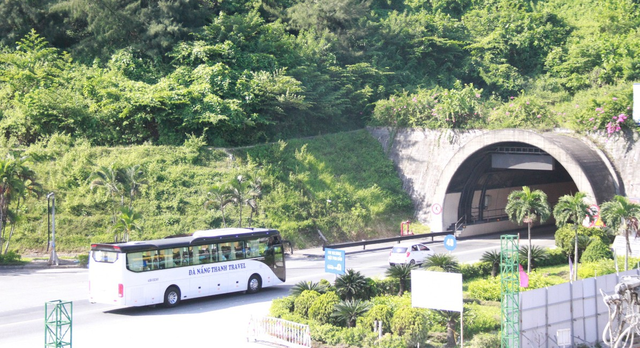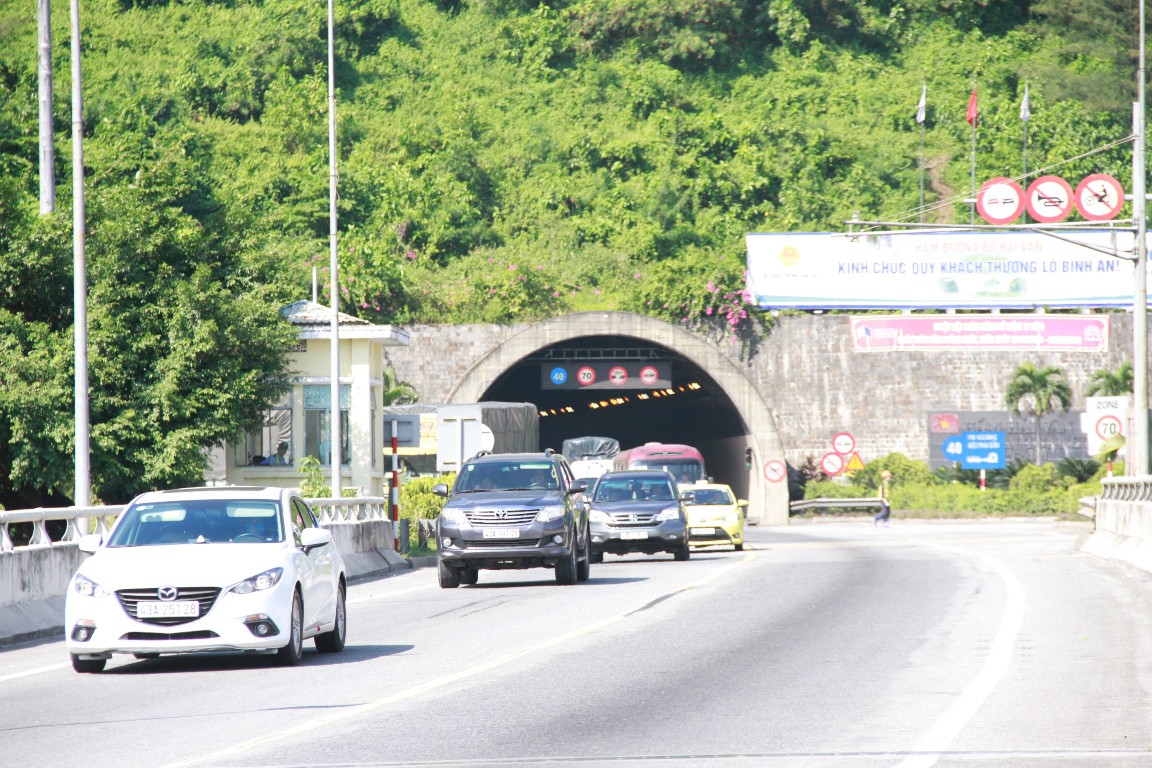The Hai Van Tunnel, an essential traffic infrastructure in central Vietnam, is at risk of being closed down as the project manager is severely lacking in the finance to pay electricity bills for the operation of the passage.
The tunnel provides a more convenient and shorter alternative to the Hai Van Pass for vehicles traveling between the central city of Da Nang and Thua Thien-Hue Province.
Opened in 2005, it stretches 6.28 kilometers along National Highway 1.
The Hai Van Tunnel Management and Operation JSC (HAMADECO), which runs the mountain-crossing passage, has been owing more than VND2.6 billion (US$111,797) to the Da Nang Power Company since September.
The power firm is now asking the Ministry of Transport to deal with the issue as the late payment has negatively affected its business operations.
Meanwhile, the firm also cannot cut its power supply to the tunnel due to its significant role.
According to Nguyen Xuan Huong, general director of HAMADECO, it costs about VND20 billion ($859,660) to operate the tunnel per quarter, half of which goes to electricity bills.
The cost had been funded by the state budget until November 2015, when Deo Ca Investment JSC began to take care of the expenditure under a contract signed with HAMADECO, Huong elaborated.
However, as Deo Ca JSC has yet to send the VND40 billion ($1.7 million) needed to cover the costs for the first two quarters of this year, HAMADECO had to borrow from banks to operate the tunnel.
 |
| The Hai Van Tunnel connecting the central city of Da Nang and Thua Thien- Hue Province. Photo: Tuoi Tre |
“The next two months will be difficult for us. Chances are that the tunnel will have to close down,” Huong stated.
In his defense, Pham Minh Duc, deputy general director of Deo Ca JSC, mentioned problems regarding a deal between the firm and the Ministry of Transport.
In August 2017, Deo Ca JSC finished upgrading the Hai Van Tunnel and 25 kilometers of roads along the Hai Van Pass in a project that cost VND1.2 trillion ($51.5 million), Duc said.
As part of the agreement, the firm was allowed to place a toll station at one entrance of the tunnel.
However, the location of this toll station is only 12 kilometers away from the tollgate of the Phuoc Tuong - Phu Gia Tunnel in Thua Thien - Hue.
As a result, the transport ministry decided that Deo Ca and the developer of the other tunnel would collect tolls for both projects at just one station, that of the Phuoc Tuong - Phu Gia passage.
Consequently, Deo Ca is only able to pocket VND10 billion ($430,220) a year, which is insufficient compared to the annual operating cost of nearly VND100 billion ($2.4 million) of the Hai Van Tunnel.
“The expense completely exceeded our financial capacity,” Duc stated, adding that the firm is seeking assistance from the transport ministry.
Like us on Facebook or follow us on Twitter to get the latest news about Vietnam!





















































